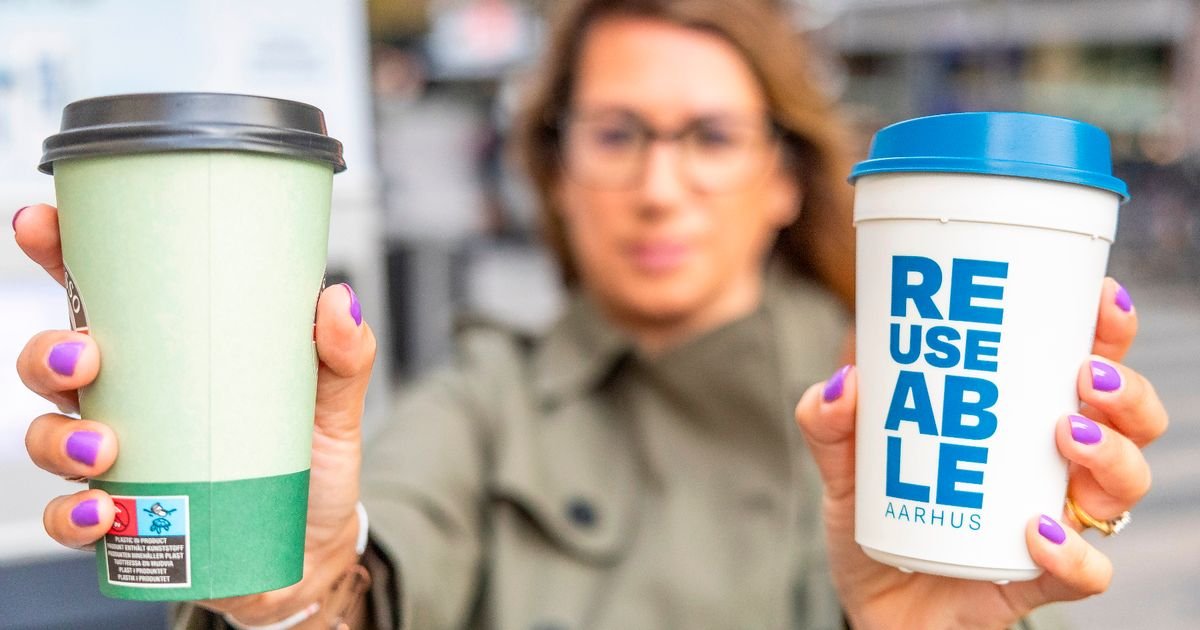In a global scenario where approximately 50 billion single-use beverage cups are disposed of annually, the impact on the environment is significant. These cups, often with plastic linings, can take a long time to decompose, leading to the release of harmful microplastics into ecosystems, posing threats to wildlife and water bodies.
Addressing this crisis, the city of Aarhus in Denmark has pioneered a groundbreaking solution with its city-wide reusable drinks scheme. This initiative has prevented thousands of cups from reaching landfills, averting the pollution of soil and air from leaching contaminants. Instead of discarding the cups, residents utilize 27 deposit machines across the city to return them for cleaning and redistribution to retailers.
The system is straightforward: a deposit of about 80 pence is refunded to the user’s bank account by swiping a credit card on the machine upon cup return. Whether it’s hot beverage cups with plastic lids or larger cups for cold drinks and beers, the cups are collected, cleaned at a specialized facility, and then sent back to retail outlets.
Simon Smedegaard Rossau, the project manager for circular systems in Aarhus, envisions a waste-free city, emphasizing the need to combat the pollution caused by microplastics. The scheme has been highly successful, with over 1.25 million cups returned in just 18 months, amounting to a substantial reduction in waste generation.
Looking ahead, the city aims to collect 1.5 million cups by 2025 and expand the program to include other forms of food packaging. The project’s momentum was catalyzed by events like the Aarhus Festuge festival, where businesses exclusively used reusable cups, resulting in the recovery of 100,000 cups during the festival weekend.
The success of Denmark’s reusable cup system has drawn attention globally, with other cities considering similar models to combat plastic waste. These circular systems are increasingly recognized as the future of waste management, offering a sustainable solution to the mounting environmental challenges posed by single-use items.
